Multiple Regions Sustainable Tourism
7 inspiring ways travel is getting greener
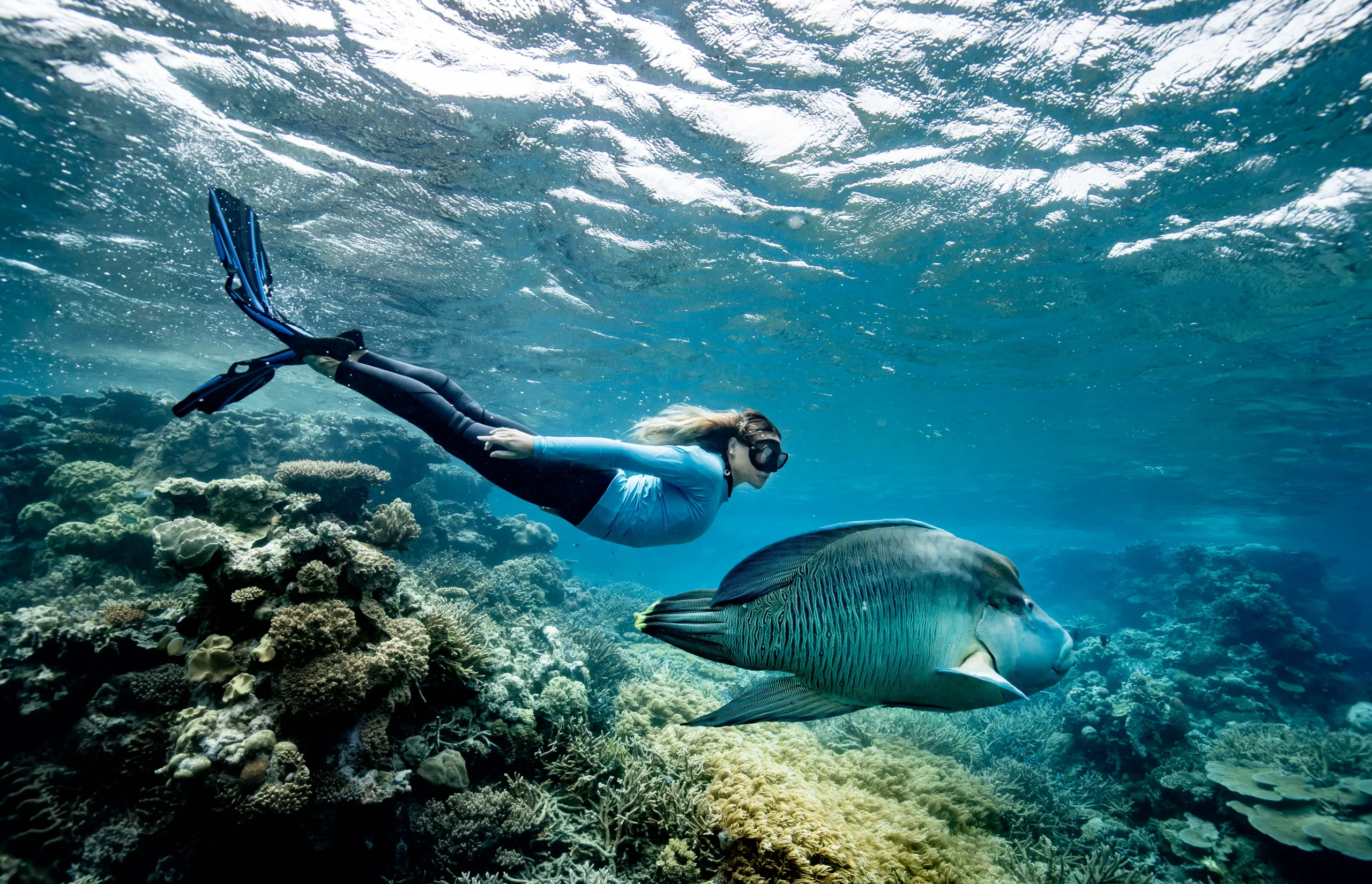
Sustainability – Wally the Humphead Maori Wrasse greets GBR Biology marine biologist Brittany Wassing alongside the Reef Magic Pontoon at Moore Reef on the Great Barrier Reef. Image Luke Marsden
From coral nurseries in Fiji to AI-powered kitchens in London, these seven initiatives show how tourism is evolving to support the planet — without compromising on style or experience
Plantation Island Resort
Fiji’s waters are a mecca for marine fans. And now this underwater environment has received an eco-boost thanks to the creation of a new ‘super’ coral nursery developed as part of the UNESCO-endorsed Reefs of Hope program. Fijian marine biologists worked for almost a year to create the nursery of heat-adapted corals, which spells out ‘Bula’ (a Fijian greeting also meaning ‘life’), beneath the Malolo waters off Plantation Island Resort. Here, ocean currents come together to create the perfect coral breeding ground – as the corals grow, they will be trimmed to create restoration patches on the Great Sea Reef, which has suffered from repeated marine heatwaves over the years.
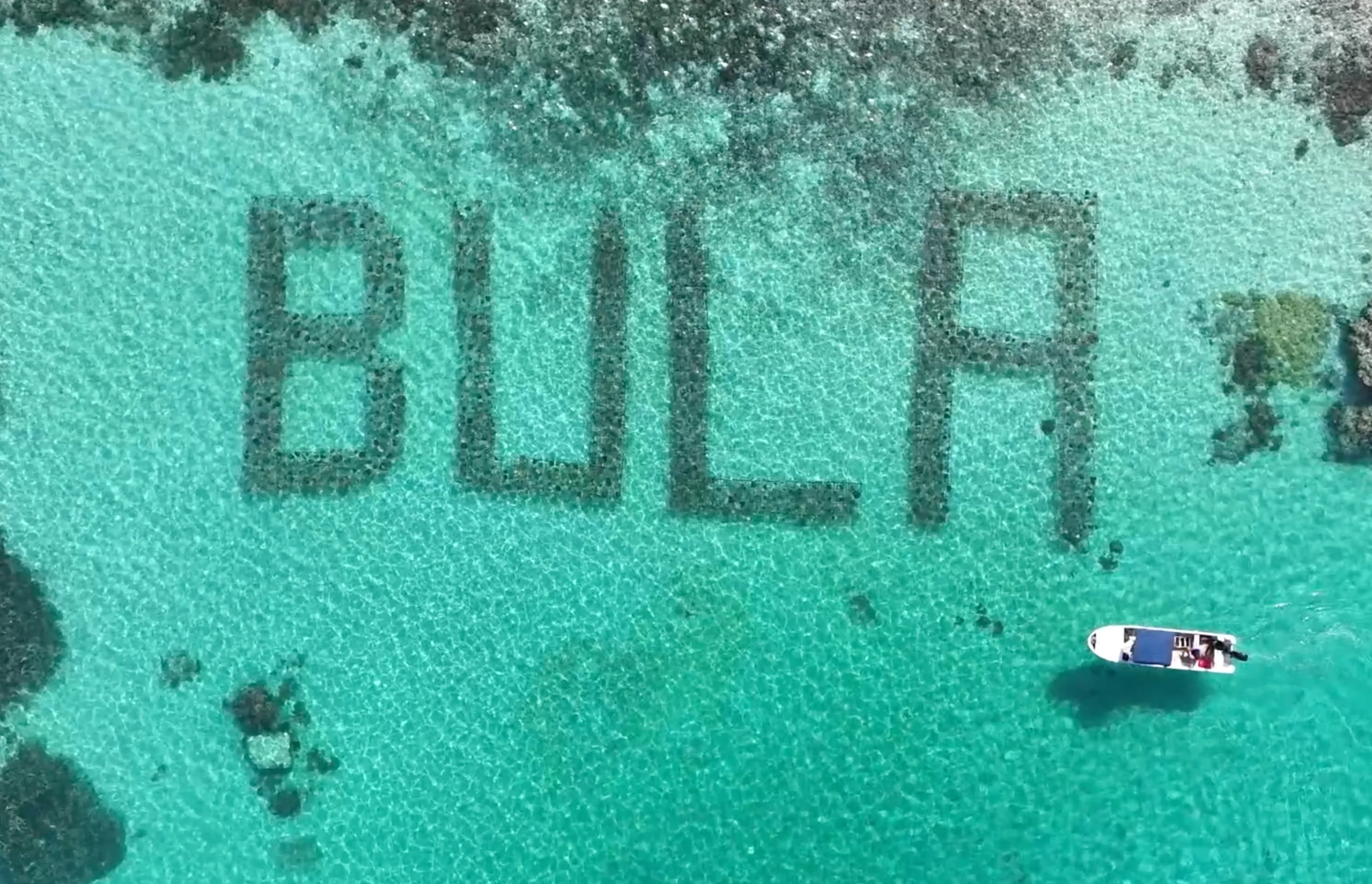
Guardian of the Reef
Passionate about all things underwater? Guardian of the Reef is a new world-first platform which promotes reef-positive travel choices and rewards adventure-seekers for learning about the World Heritage-listed Great Barrier Reef off the coast of Queensland. Conservation curious travellers can visit the newly launched website and work through a series of short educational videos and fast facts, each with a coupon reward system, which you can then use to book your next holiday to Queensland. The project blends science and environmental education with Indigenous wisdom and sustainable products, to help travellers learn more about the health of the Great Barrier Reef and conservation initiatives.
expedia.com.au/see/guardian-of-the-reef
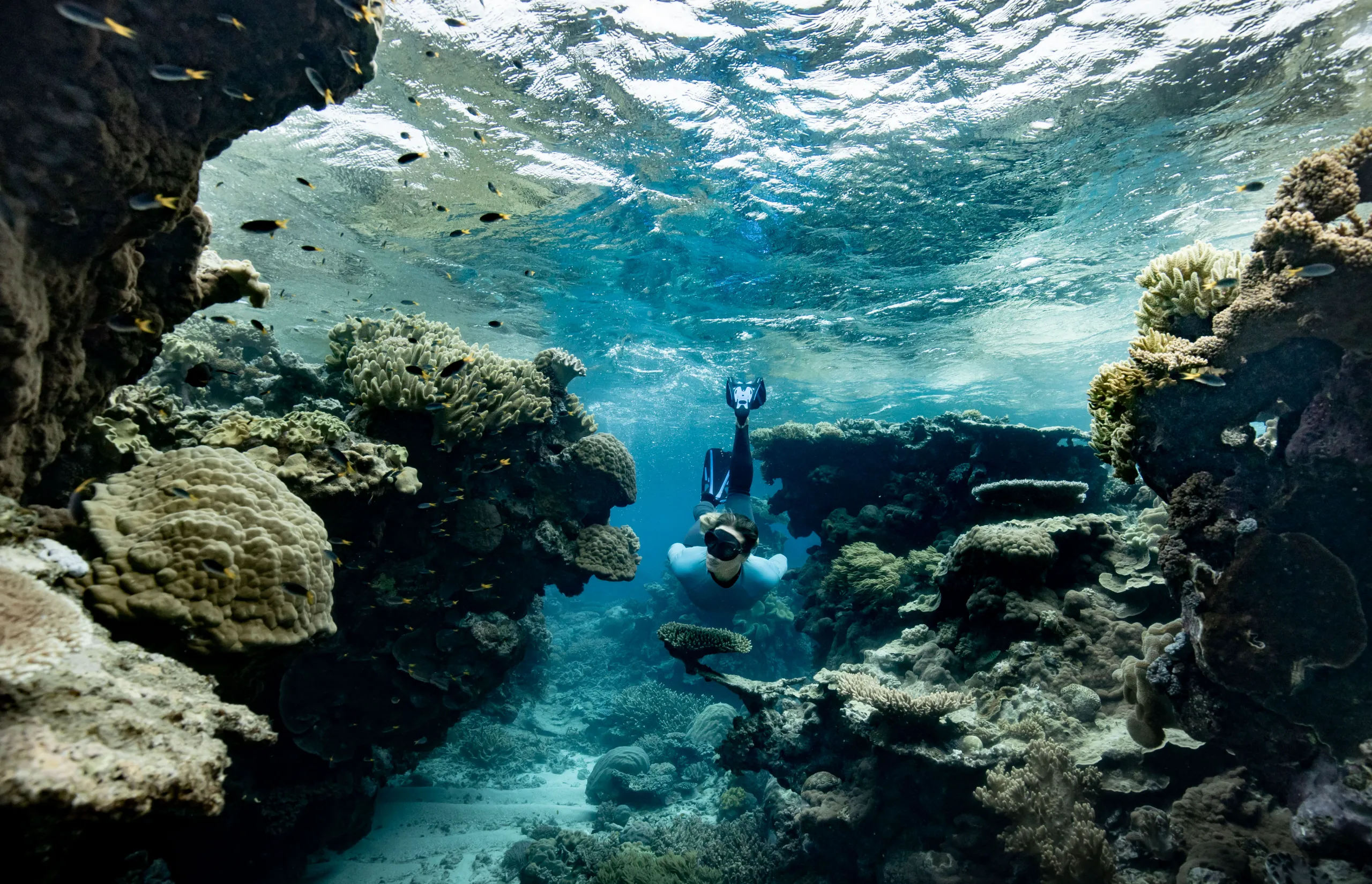
Seabourn
American Express’ 2022-2023 Environmental, Social, and Governance Report found that 78 per cent of respondents are committed to holidays that support and positively impact local communities. Enter luxury cruise line Seabourn’s latest endeavour to offer just that. The company recently appointed Traditional Owners of Australia as Godparents of new expedition ship Pursuit, marking start of lasting partnership with the Wunambal Gaambera community. It’s the first company to offer an initiative of this poignance, fostering a relationship that will allow Traditional Owners to live on Country during the dry season – while allowing Seabourn guests the chance to experience travel that makes a positive impact via experiencing Wanjina Wunggurr culture through welcome and smoking ceremonies; rock art tours; junba song and dance; and art and stories from the Uunguu Rangers.
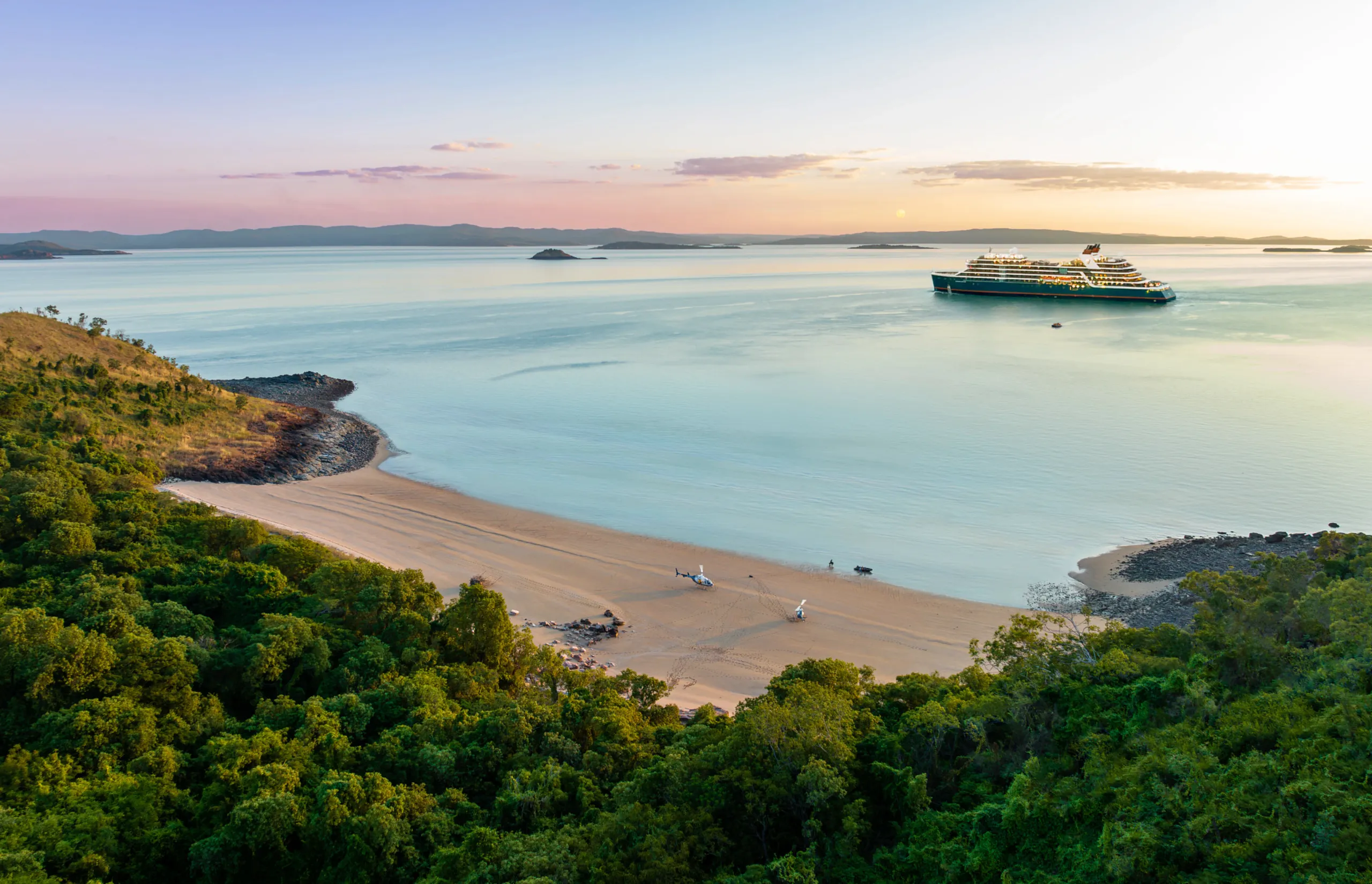
Soneva
For decades, the Soneva brand has set the bar high when it comes to sustainable tourism. Today, the luxury resort operator is making significant strides in its commitment to renewable energy, with a focus on solar energy in the Maldives. This year, both Soneva Fushi in the Baa Atoll and Soneva Jani in the Noonu Atoll have targeted close to 50 percent of their energy needs to be generated from photovoltaic (PV) sources, thanks to the addition of new PV installations – up from around 12 per cent in the past. In addition, the brand is currently exploring the potential of installing floating solar panels in the ocean surrounding its island resorts – 2024’s new resort Soneva Secret already has them – as well as new land-based locations. The result? A stay that is as sustainable as it is stylish.
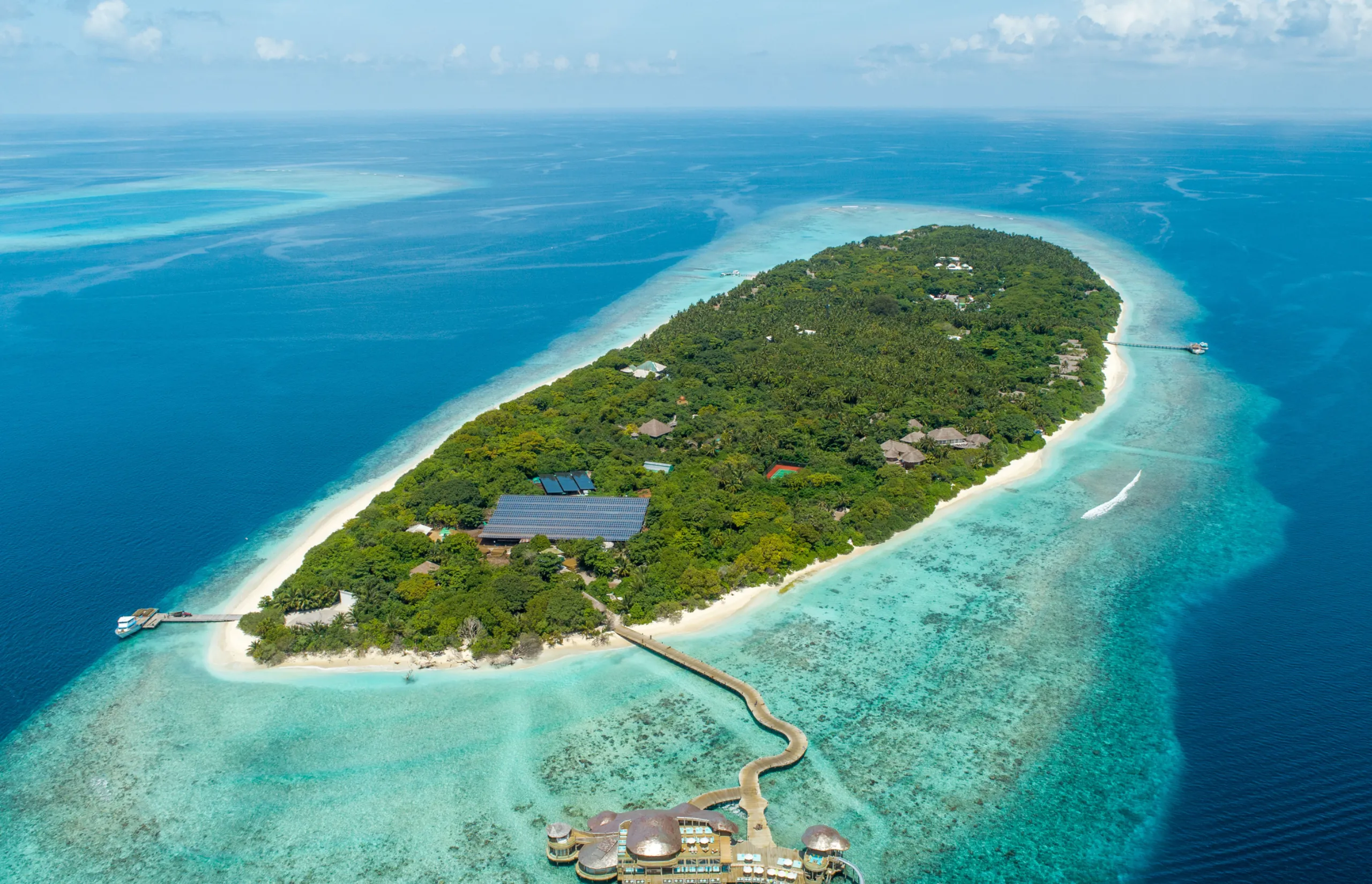
Mandarin Oriental Hotel Group
Food waste is a massive issue around the world each year, particularly in hotels where buffets often bulge with uneaten meals. Mandarin Oriental Hotel Group is taking the charge to stem the tide, committing to install Winnow’s AI food waste technology across all its hotels by the end of 2025. The project has been trialled at four hotels over recent months, with a dramatic 36 per cent reduction in waste. In a nutshell, the Winnow tech enables staff to seamlessly track exactly what wastage occurs throughout their production stream. With this data, users are empowered to optimize efficiency, change behaviours and drive majorwaste reductions via cameras, smart-scales and tablets. The result is a win-win: using AI in its kitchens will allow Mandarin Oriental to improve its quality of service alongside significant reductions in costs and environmental impact.
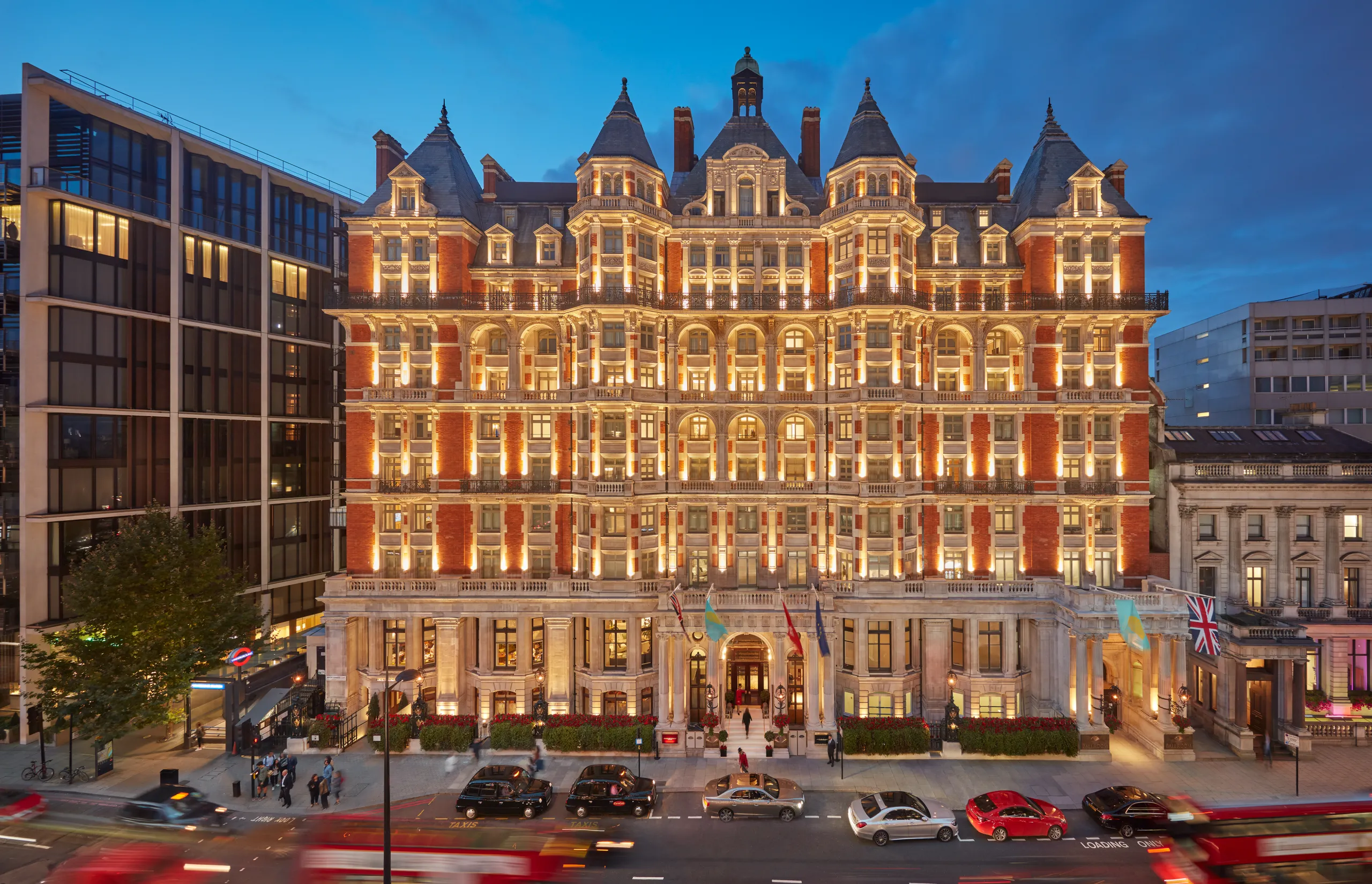
Cambodia calling
Song Saa Private Island off the coast of Cambodia in the Koh Rong Archipelago is one of the world’s most regenerative high-end resorts, and a true example of how the tourism industry can not only support but improve local communities and environments. In recent years, the resort has planted mangroves, established coral nurseries and led solid-waste management programs, processing more than 200 metric tons of rubbish to protect local ecosystems. In partnership with International Medical Relief, it also now provides free healthcare to the 3,000 inhabitants of the archipelago, while the Boat of Hope – a dedicated Foundation vessel – supports some 500 households with vital resources, education, and healthcare. The resort also funds Cambodia’s largest island-based marine conservation initiative through its Ocean Stewardship Program, establishing the region’s first large-scale Marine Protected Area in 2012. And there are no plans to slow down – Song Saa is on a mission to continue restoring marine life via the expansion of artificial reefs, coral nursery programs and seagrass conservation projects.
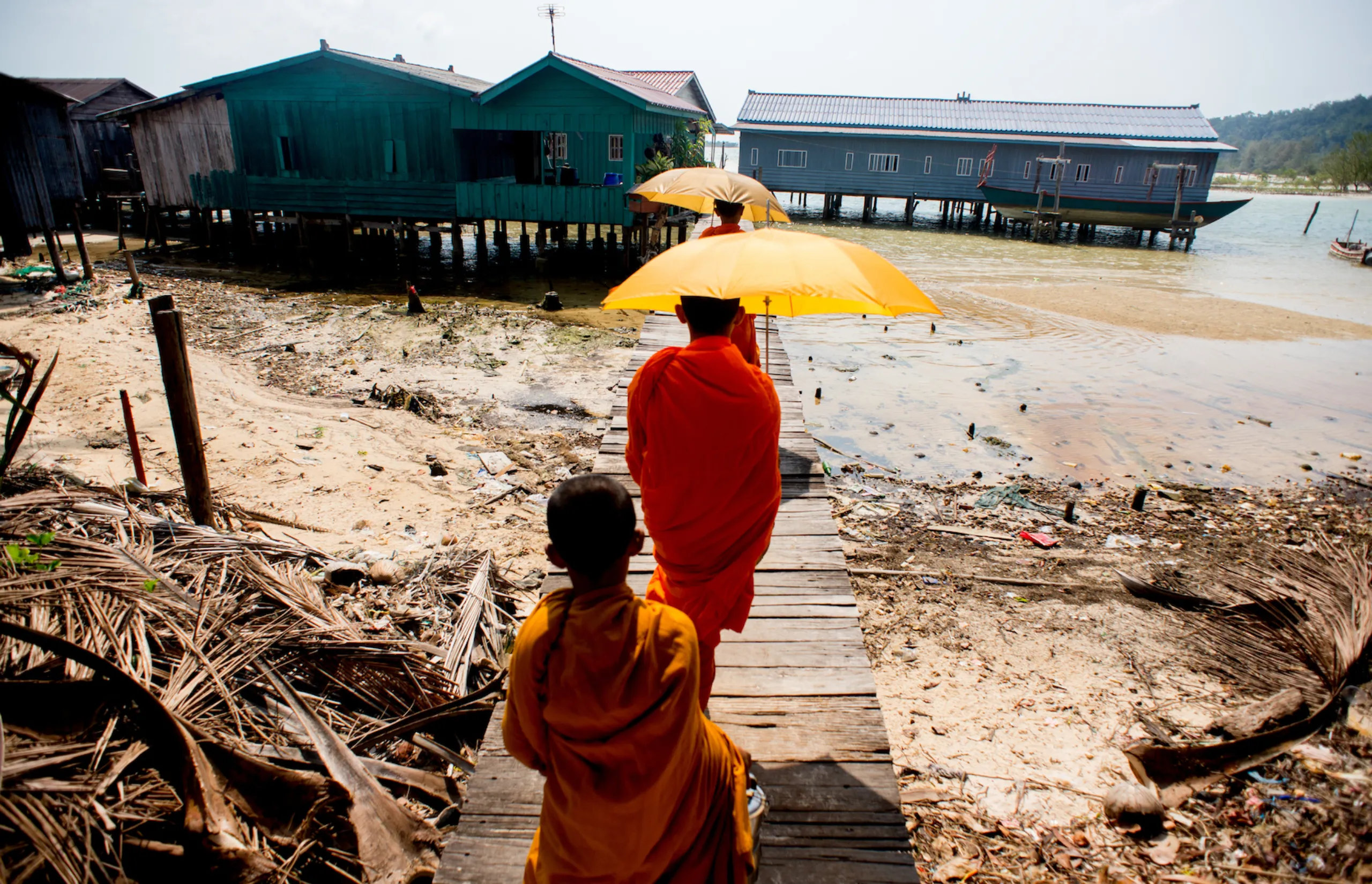
All the buzz
Sustainable-forward rainforest hideaway The Datai Langkawi is all about making memories and doing good for the planet, so harvesting honey direct from their stingless beehives as part of the Bee a Beekeeper experience is just part of another buzzy day at the Malaysian rainforest resort. Check in and join sustainability manager Mohd Zakwan Zamri to witness these fascinating pollinators close up, learn how to harvest honey directly from the stingless beehives, and take home the jar of honey harvested. Native to Southeast Asia, stingless bees of the Trigona itama species reside in their natural habitat at The Garden at The Datai Langkawi. They play a vital role in the island’s ecosystem by pollinating a wide variety of plants.
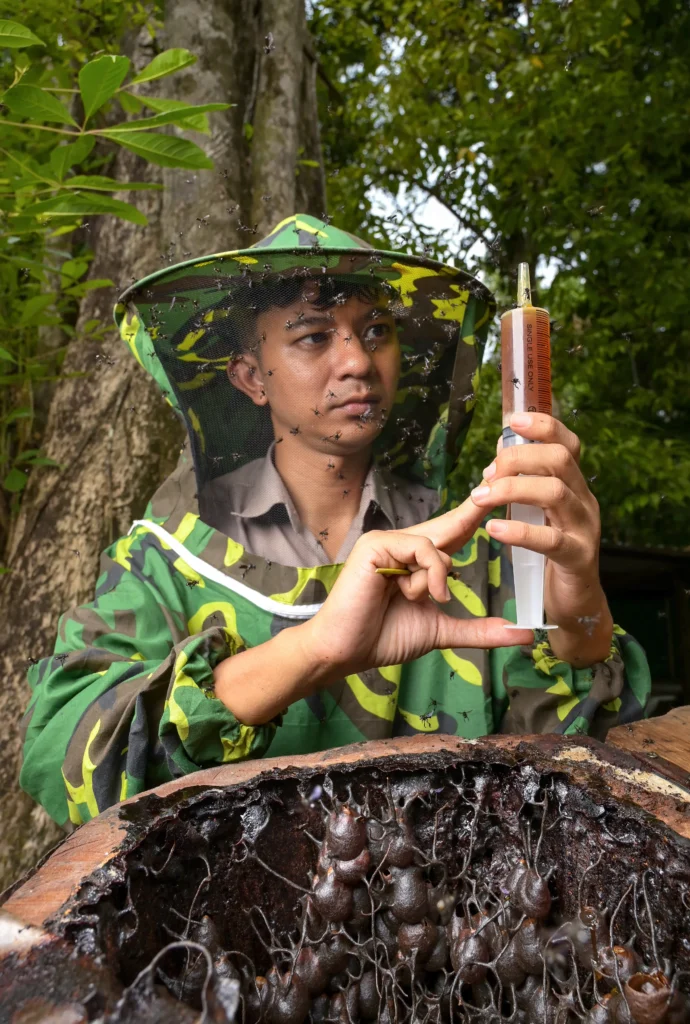
Latest Articles
Don't miss the latest from Luxury Travel
